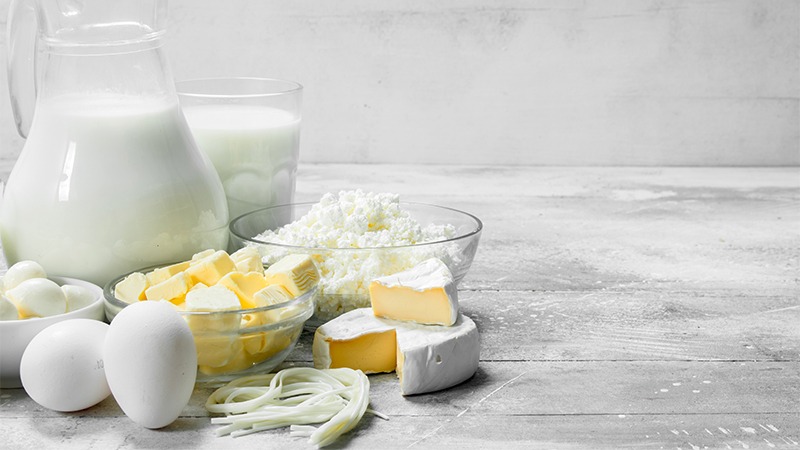Fun fact: Humans are the only species that consume milk in adulthood and milk from other animals.
Want another? Most humans have only been consuming dairy for a few hundred years, since the agricultural revolution. For the tens of thousands of years before that, humans never consumed dairy, and even those that did only span back a thousand years or so.
And how about one more for giggles? Roughly 75% of the world’s population is lactose intolerant. In other words, three out of four people’s bodies can’t break down lactose – the main carbohydrate in dairy products – and thus can’t consume any without nausea, vomiting, diarrhea, or, at the very least, clearing the room with their stink bombs.
So, to recap: By consuming dairy, you’re doing something many consider completely unnatural, something human bodies may not have fully adjusted since it’s so new AND risking others in confined spaces with you to methane poisoning (just kidding … kind of).
Obviously, dairy must be bad for you, right?
Actually, yes and no.
Dairy is a polarizing topic, as people want to take sides one way or the other, with people voicing against it often shouting loudest. The reality is, it has both good and bad traits, and a lot depends on the source of the dairy and your body. So, let’s look at facts to help you decide.
Is it nutritional? Yes!
Calorie for calorie, dairy products are often some of the most nutritious foods.
A single cup (237 ml) of milk contains:
- 28% of your daily calcium
- 24% of your daily vitamin D
- 26% of your daily vitamin B2/riboflavin
- 18% of your daily vitamin B12
- 10% of your daily potassium
- 22% of your daily phosphorus
It also boasts good amounts of vitamin A, B1, and B6, selenium, zinc, and magnesium, alongside 146 calories, 8 grams of fat, 8 grams of protein, and 13 grams of carbs. It’s one heck of a meal in itself. Now, are cheese, butter, and ice cream as nutritious? No. Their nutrient composition is much different, and you must keep that in mind.
Another thing to keep in mind is the source. Just like better produce comes from better seeds and soil, grass-fed cows produce milk with more omega-3 fatty acids and 500% more conjugated linoleic acid (CLA). In addition, their milk has also been proven to have higher fat-soluble vitamins like vitamin K2, which is important for regulating metabolism and supporting bone and heart health.
Throw in dairy products’ calcium for stronger bones, significant links to fighting heart disease, and the fact that milk’s original purpose is to grow a newborn rapidly, and one can easily argue it has as many or more positives than negatives.
Thus, to the question in the title about ditching milk, the reality is it’s up to you. If you’re looking to bulk up, it’s probably a great option based on the fact that it’s designed to do just that, but even if you’re looking to lean down, supplementing it into your diet in some way also may have its benefits. On the flip side, if drinking a glass of milk feels unnatural, makes your stomach cramp up, or makes it dangerous to light a match in your vicinity, you should probably skip it.






